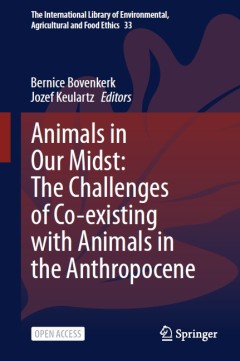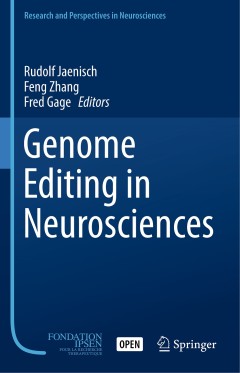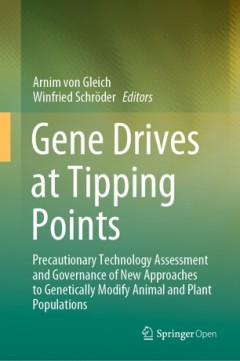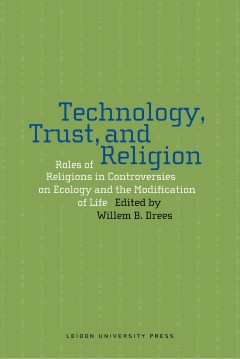Filter by

Literature, science and public policy from Darwin to genomics
Literature, Science, and Public Policy shows how literature and literary study can help shape public policy concerning controversial scientific issues such as genetic engineering, cloning, GMOs, gene editing, and more. Literature brings unique insights to these issues, dramatizing their full complexity. Its value for public policy is demonstrated by striking examples in chapters that take …
- Edition
- -
- ISBN/ISSN
- 9781009263504
- Collation
- xviii, 244 pages; illustration
- Series Title
- -
- Call Number
- 823.009 CLA l

Animals in our midst : the challenges of co-existing with animals in the anth…
This Open Access book brings together authoritative voices in animal and environmental ethics, who address the many different facets of changing human-animal relationships in the Anthropocene. As we are living in complex times, the issue of how to establish meaningful relationships with other animals under Anthropocene conditions needs to be approached from a multitude of angles. This book offe…
- Edition
- -
- ISBN/ISSN
- 9783030635237
- Collation
- xiii, 579p. : ill.
- Series Title
- -
- Call Number
- 179.3 ANI a

Genome editing in neurosciences
Innovations in molecular biology are allowing neuroscientists to study the brain with unprecedented resolution, from the level of single molecules to integrated gene circuits. Chief among these innovations is the CRISPR-Cas genome editing technology, which has the precision and scalability to tackle the complexity of the brain. This Colloque Médecine et Recherche has brought together experts f…
- Edition
- -
- ISBN/ISSN
- 9783319601922
- Collation
- xi, 123p. : ill.
- Series Title
- -
- Call Number
- 572.8 GEN g

Gene drives at tipping points : precautionary technology assessment and gover…
This open access book reports on a pilot project aiming at collecting information on the socio-ecological risks that could arise in the event of an uncontrolled spread of genetically engineered organisms into the environment. The researchers will, for instance, be taking a closer look at genetically engineered oilseed rape, genetically engineered olive flies as well as plants and animals with s…
- Edition
- -
- ISBN/ISSN
- 9783030389345
- Collation
- xviii, 256p. : ill.
- Series Title
- -
- Call Number
- 636.0821 GEN g

Technology, trust, and religion : roles of religions in controversies on ecol…
What does it mean to be human in a world of technology? What could be the role of religion in responding to the ecological crisis? Should we be concerned about the modification of food, and even of ourselves? Who do we trust to make decisions regarding our common future? What do we use our technology for? These are not questions for experts only. How can the wider public be involved? Do experts…
- Edition
- -
- ISBN/ISSN
- 9789087280598
- Collation
- 316p. : ill.
- Series Title
- -
- Call Number
- 200 TEC t
 Computer Science, Information & General Works
Computer Science, Information & General Works  Philosophy & Psychology
Philosophy & Psychology  Religion
Religion  Social Sciences
Social Sciences  Language
Language  Pure Science
Pure Science  Applied Sciences
Applied Sciences  Art & Recreation
Art & Recreation  Literature
Literature  History & Geography
History & Geography